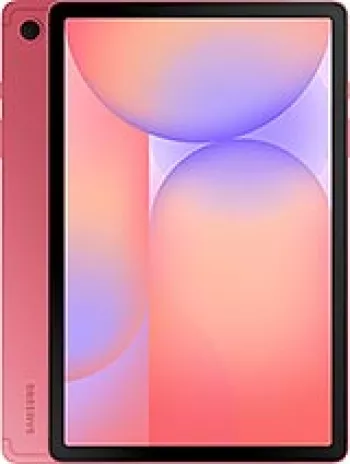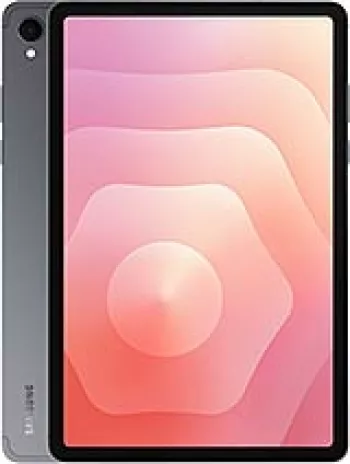
Introduction to Samsung Array M390
The Samsung Array M390 is a feature phone that was announced in August 2012 and released in September of the same year. This device was discontinued, but it remains an example of a compact and easy-to-use phone that was designed for basic communication purposes. Targeted towards users seeking simplicity and reliability, the Array M390 offered basic functionalities without the complexities of modern smartphones.
Network Capabilities
Samsung Array M390 operates on CDMA technology. It supports 2G bands, specifically CDMA 800/1900, providing users with reliable connectivity for calls and text messaging in areas with CDMA network coverage. The device does not support GPRS or EDGE, which are network technologies primarily used for mobile data services, indicating its primary focus on voice and text communication.
Design and Build
The phone boasts a compact design with dimensions of 112 x 54 x 15 mm and a weight of 117 grams. This lightweight build makes it easy to carry around and handle daily tasks. The device comes with a physical QWERTY keyboard, allowing for speedy and accurate text input—a feature that was especially beneficial in the pre-smartphone era for users who frequently communicated via SMS or email. The device uses a Mini-SIM card.
Display
The Samsung Array M390 features a 2.4-inch TFT display with a resolution of 240 x 320 pixels. Although the screen size and resolution are modest compared to current standards, it was quite adequate for navigating through the phone’s interface and reading text messages. This 4:3 screen-to-body ratio display provided a pixel density of approximately 167 pixels per inch, offering clear and legible text and graphics suitable for a feature phone.
Platform and Performance
At the core of the Samsung Array M390 is the Qualcomm QSC 6155 chipset, which includes a 480 MHz CPU. While this might not suffice for today's demanding applications, it was adequate for basic tasks such as calling, messaging, and running simple applications during its time. The phone's operating system is optimized for feature phones, offering a straightforward user experience.
Memory and Storage
Internally, the Array M390 is equipped with 40MB of storage, paired with 128MB RAM, and 256MB ROM. Although limited by modern standards, this storage capacity was typical for feature phones at the time. It provides a dedicated microSDHC card slot, allowing users to expand storage and store more data, such as contacts and messages. The phonebook feature supports photocall, and users can maintain call records.
Camera Features
The main camera on the Samsung Array M390 is a single 2MP shooter. While this may seem minimal compared to today's multi-lens systems, it was sufficient for capturing basic images and videos. The device supports video recording, making it suitable for capturing brief moments and for video messaging.
Audio and Connectivity
For audio, the phone includes a loudspeaker and a 3.5mm headphone jack, allowing users to listen to music and use headsets with ease. On the connectivity front, the phone features Bluetooth 3.0 with A2DP, enabling users to connect wirelessly to other devices for data transfer or to use wireless audio peripherals. However, it lacks WLAN, GPS, and radio capabilities, focusing instead on providing essential connectivity features for its time.
Battery Life
The Array M390 is powered by a removable Li-Ion 1000 mAh battery. While this capacity may appear low in today's context, the efficient power usage of feature phones allows for substantial standby and talk times. Users can expect up to 252 hours on standby and up to 4 hours of talk time, ensuring that the device remains functional throughout the day without frequent recharges.
Additional Features
In terms of additional features, the Samsung Array M390 supports various messaging formats, including SMS with threaded view, MMS, Email, and Instant Messaging. This breadth of options provides users with multiple ways to communicate with others. Pre-installed games are available, offering some entertainment options on the device.
Miscellaneous
The phone was available in two color options: black and black/silver, offering some variety in terms of aesthetics. The SAR values are 1.09 W/kg for both head and body, adhering to safety standards for electromagnetic exposure.
Conclusion
The Samsung Array M390 stands as a testament to the era of feature phones, emphasizing simplicity and reliability. Although it lacks the advanced capabilities of modern smartphones, it offers a robust set of features geared towards basic communication needs. Its design and technical specifications cater to a niche market looking for durability and ease of use, making it a memorable piece in the evolution of mobile devices.
Key Features of Samsung Array M390
- Compact design with dimensions of 112 x 54 x 15 mm.
- Lightweight body weighing 117 grams.
- QWERTY keyboard for easy typing.
- 2.4-inch TFT display with 240 x 320 pixel resolution.
- Expandable storage via microSDHC card slot.
- 2 MP main camera with video recording capabilities.
- Bluetooth 3.0 with A2DP support for wireless connectivity.
- Removable Li-Ion 1000 mAh battery providing up to 252 hours of standby time.
- Includes 3.5mm headphone jack for audio connectivity.
Disadvantages of Samsung Array M390
- Discontinued model, no longer supported by the manufacturer.
- Limited network capabilities with only CDMA technology, no GPRS or EDGE.
- The display is small (2.4 inches) with a low screen-to-body ratio and resolution.
- Low-performance CPU with only 480 MHz processing power.
- Very limited internal memory of 40MB for storage.
- Lacks a front-facing (selfie) camera.
- No WLAN connectivity, limiting internet access methods.
- No GPS or positioning services available.
- No radio support for FM/AM audio content.
- Uses a proprietary USB connection instead of a standard port.
- Short battery life with a maximum talk time of just 4 hours.
- No sensors for enhanced functionality.



View Also
More Phones
All Rights Reserved +14266 Phones © Mobilawy 2025

























